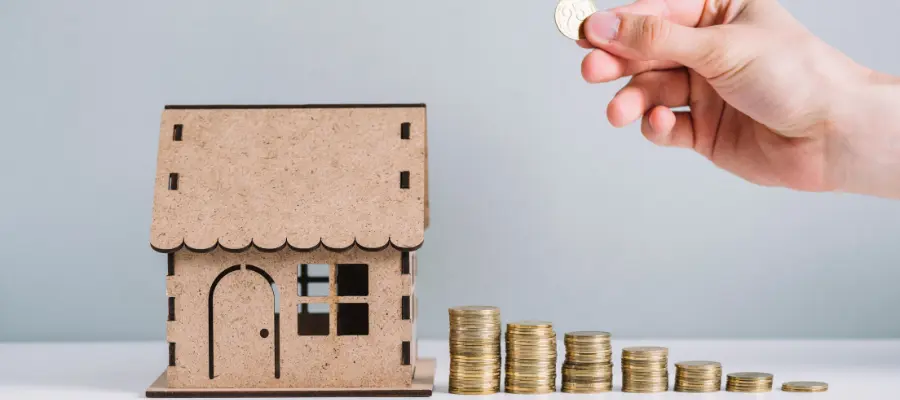As people progress through life, their standard of living also evolves. A home transitions from being just a place to live to a reflection of one’s status. Everyone wishes their house to be elegant and comfortable for their lifestyles. The old house, however, holds countless cherished memories, making demolition unthinkable. Hence, they wish to renovate that same old house.
Do you belong to one of them? Are you planning to renovate your old house into an elegant living space? Do you want to know more about house renovation loan options? Then you are in the correct spot!
Today’s blog from Brick & Bolt will help you understand the advantages of home loans and house renovation loans, their eligibility and requirements, and the application process for home remodel loans.
What is a House Renovation Loan?
A house renovation loan is a specific type of loan designed to fund repairs and enhancements to your house. This loan can be utilised for both interior and exterior renovation projects.
Generally, house remodelling loans include
- Painting
- Tiling
- Flooring
- Waterproofing
- Plumbing
- Sanitary Work
Different Types of a House Renovation Loan

Home improvement projects can be costly, but several loan options are available to help finance the costs.
Home Equity Loans and Lines of Credit (HELOC)
HELOC allow you to borrow against the equity in your home. These are secured loans, meaning your home serves as collateral, making them lower risk for lenders and potentially cheaper for borrowers. Home equity loans provide a lump sum upfront, while HELOCs give you a line of credit to draw from as needed. HELOCs can be useful for ongoing projects where you don’t need all the funds immediately. However, the variable interest rates mean your payments can fluctuate.
Personal Loans for Home Improvement
Personal loans are another popular option for home renovations. As unsecured debt, they don’t require collateral but tend to have higher interest rates. The advantage is easy approval and quick funding from various traditional and online lenders.
Cash-out Refinancing
Cash-out refinancing allows you to take out a new, larger mortgage and pocket the difference to pay for renovations. This can provide low, fixed payments stretched over up to 30 years for major projects. However, you’ll pay closing costs, need significant home equity, and may get a higher interest rate than your current mortgage.
FHA 203(k) Rehabilitation Loan
The FHA 203(k) rehabilitation loan, backed by the Federal Housing Administration, rolls renovation costs into a new mortgage. This government-insured option offers flexible requirements but stipulates work must begin within 30 days of closing and complete within six months.
Benefits of a House Renovation Loan

Minimal Home Improvement Loan Interest Rates
Generally, home improvement loan interest rates will be fixed and lower than personal loans.
Lower Equated Monthly Installments
If you choose the lowest home improvement loan rates and longer term, your EMIs(Equated Monthly Installments) will be reduced. For normal employees with minimal incomes, this will be more helpful.
Tax Deductions
Homeowners can get home renovation loan tax deductions (under the Income Tax Act of 1961 in India). These deductions help cut the costs associated with renovating and maintaining their homes.
Minimal Paperwork
House renovation loans offer a smooth documentation process compared to other financing options. They generally require basic documents like identity proof, income statements, photographs, and property title deeds.
Quick Processing
One of the major benefits of house renovation loans is their quick processing time, thanks to minimal and straightforward documentation requirements. This efficient process enables you to begin your renovation projects promptly without waiting periods for loan approval.
Long Duration
House renovation loans typically offer tenures ranging from five to fifteen years, providing borrowers with a manageable repayment schedule.
Eligibility and Requirements for House Renovation Loan
Home renovation loans offer flexibility in terms of application with the following eligibility criteria.
- To qualify for the house renovation loan, the candidate must be an Indian resident.
- You can apply for loans for house repairs individually or jointly with another homeowner.
- These loans are accessible to both salaried individuals and self-employed professionals.
- While the minimum age requirement is 21 years, the maximum age limit extends until retirement.
- All property owners must be included as co-applicants for the home renovation mortgage.
Conclusion
If you wish to remodel your home to improve your living space and advance your standard of living, a house renovation loan could be the perfect financing solution. These specialised loans offer numerous advantages over traditional options. With suitable home remodel loans, you can make the process of transforming your home more accessible and affordable.

